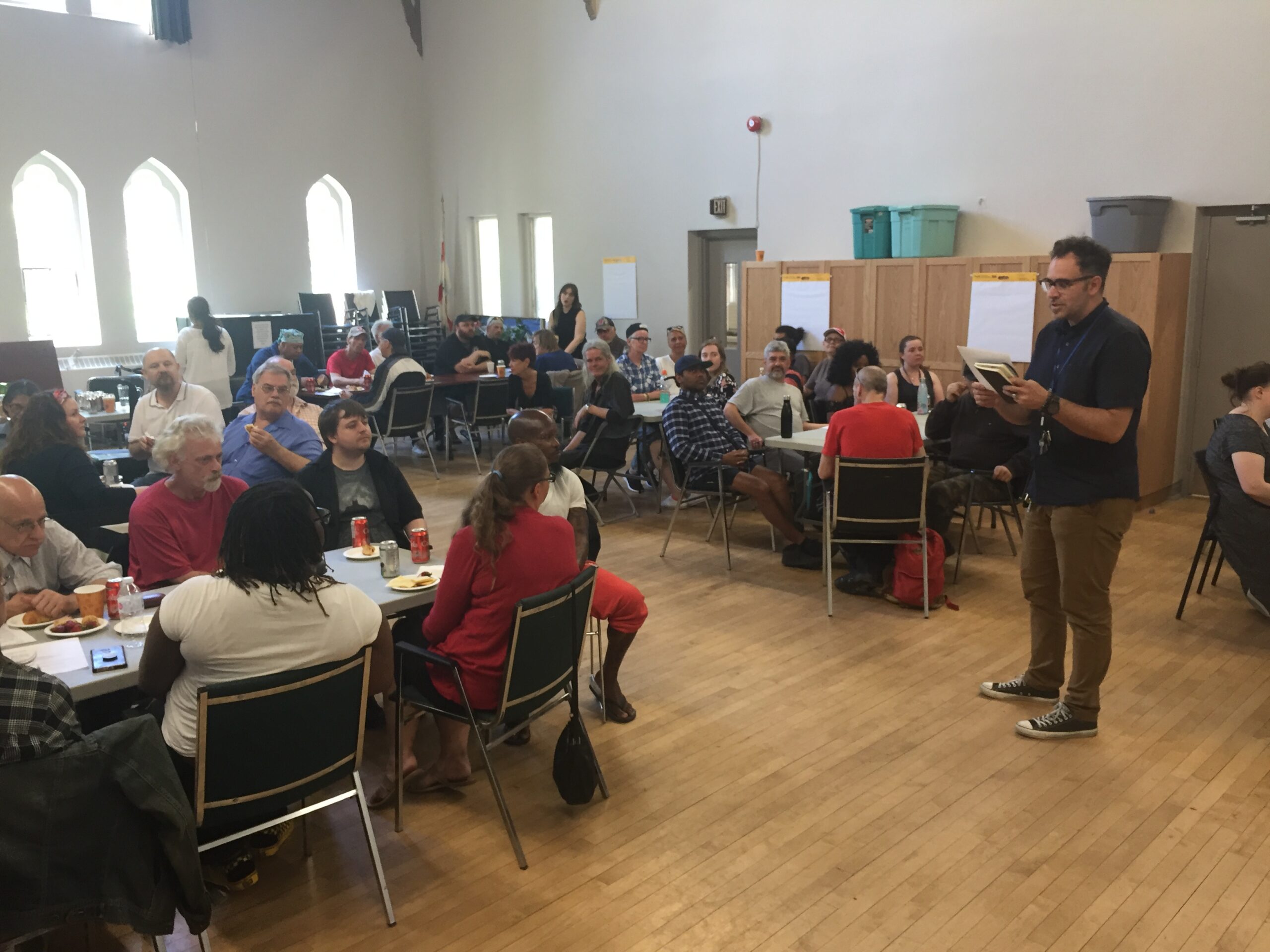
July 24, 2019
The Rooming House Project One Year Later: What We Learned from Supporting the Precariously Housed in Cabbagetown
Last summer, we launched the Rooming House Project (RHP) in partnership with Ecuhome Corporation and Homes First Society. Through the RHP, we’re providing crucial supports to tenants of rooming houses in Cabbagetown to improve their quality of life and stabilize housing. Rooming houses are some of the last remaining affordable housing options in Toronto, but tenants often face unique challenges.
Our team has worked diligently to build relationships with tenants, to establish connections to the community, and to create opportunities for tenant engagement. We expanded a tenant-managed foodbank, created a tenant newsletter with submission opportunities, and implemented Community Meal programs which run three times per week.
The first year of the project has flown by and we’re proud of what we’ve accomplished so far. Before heading into the second year of the project, we hosted a consultation to participate in the HousingTO 2020-2030 Action Plan. The Housing 2020-2030 Action Plan is designed to address the affordable housing crisis in Toronto and includes a resident feedback component.

Our consultation, which took place in June, included tenants from the rooming houses along with formerly homeless men and women, current shelter residents, and clients from partner agencies. Their feedback gave us an excellent opportunity to assess our work in the RHP to date and consider future plans. Our consultation resulted in 3 key learnings:
1. Rooming Houses are Important
There are many challenges associated with rooming houses. Examples include lack of common space, shared amenities, and aging infrastructure. Despite issues with the structures and environments of rooming houses, participants agreed they have an important place in the Toronto housing ecosystem. During our consultation, all participants agreed that we need rooming houses in our city as a safe space for marginalized community members as long as they receive additional supports as they transition from street or shelter living. They also noted the need for skilled housing workers to deliver services so rooming houses can function as supportive housing.
2. Everyone Wants to Feel Safe in Their Home
Like many of our clients, rooming house tenants are living in poverty and may be living with complex challenges including addiction or substance abuse, isolation, or mental health challenges. Tense environments can result, particularly given the lack of common space and the shared amenities. Overwhelmingly, we heard from participants the value of living with safety, privacy, and peace. They emphasized the importance of good landlords who are responsive, reliable and accountable. Feeling pride in their home and community was another key contributor to their overall wellness.
3. Dixon Hall is Doing Good Work
Though we established that rooming houses can have tough physical and emotional environments, tenants were eager to share that the work Dixon Hall is doing is valued. When participants outside of the RHP shared their need for skilled housing support workers, tenants were quick to champion our staff. One tenant even used the words “life changing” to describe what he felt the impact of the Rooming House Project would be on younger tenants. Dixon Hall staff were applauded for their unique approach in delivering services to tenants. According to tenant feedback Dixon Hall staff focus on building relationships and on looking at each tenant as an individual, resulting in different service plans for everyone.
Hosting a consultation of this nature was extremely valuable for our team and for participants. For our team, it gave us the chance to hear candid feedback from our tenants and other community members who have been impacted by housing services within the city of Toronto. For participants, this was an opportunity to share feedback directly with social service providers and to influence the creation of the HousingTO 2020-2030 Action Plan. Their positive feedback was encouraging; and their concerns guide our path forward as we continue our work with tenants through the Rooming House Project.

